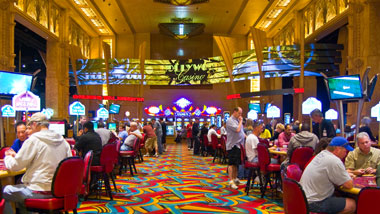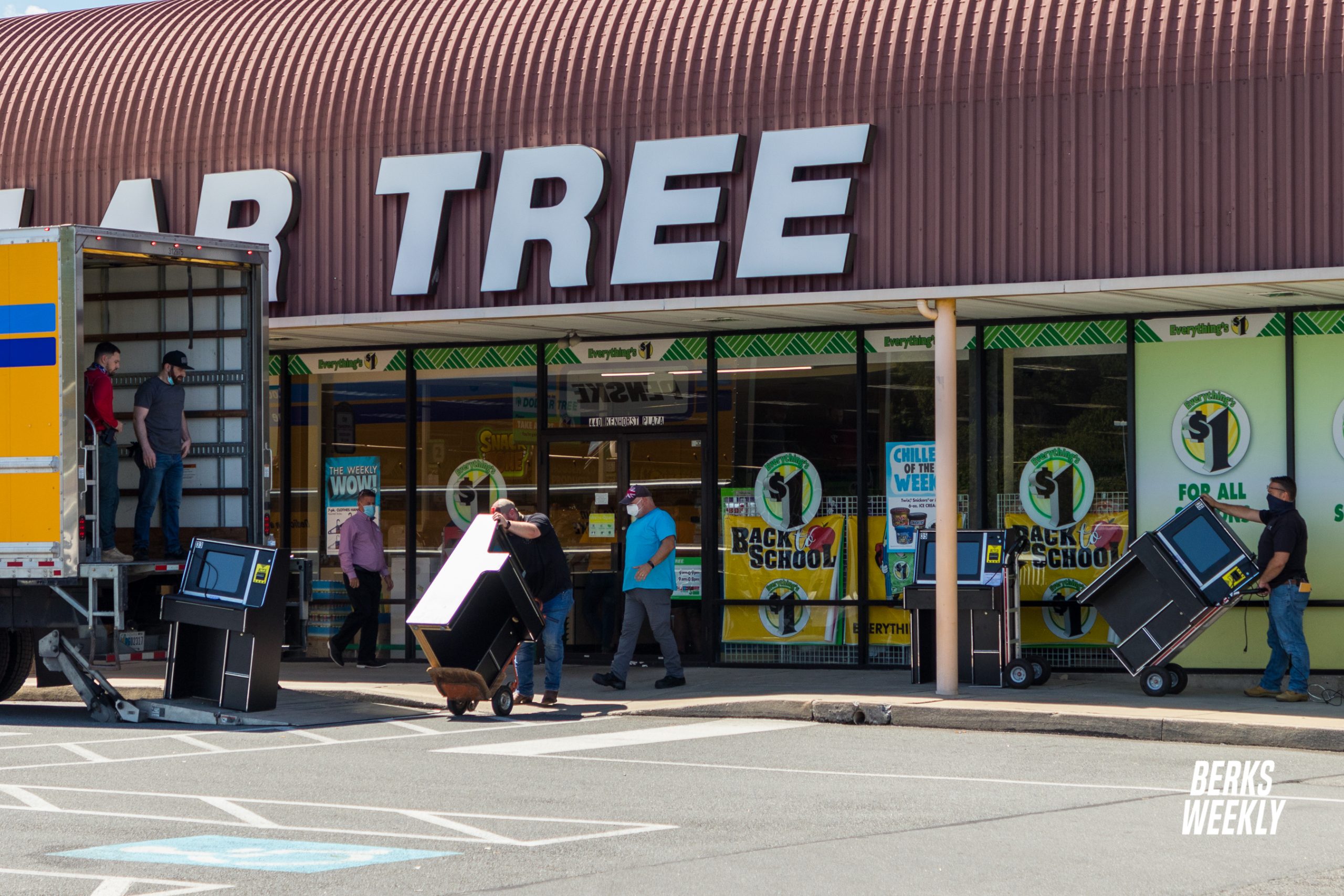Pa Casino Commission
| Agency overview | |
|---|---|
| Formed | 2004 |
| Jurisdiction | Pennsylvania |
| Headquarters | 303 Walnut Street, 2nd Floor, Strawberry Square, Harrisburg, PA 17101 |
| Agency executives |
|
| Website | http://gamingcontrolboard.pa.gov/ |
NEW number to Report Harvests by phone: 1-800-838-4431. Close NEW number to Report Harvests by phone: 1-800-838-4431. There are 12 casinos in activity within the territory of PA. In total the gaming offer include more than 30,000 slot machines, 1,000 gaming tables, 290 poker tables as well as 9 horse tracks. The Parx Casino. The Pennsylvania Gaming Control Board is responsible for licensing casinos in the state of Pennsylvania and the regulatory agency whom oversees slot machines and casino gambling in Pennsylvania. Currently the Pennsylvania Gaming Control Board has issued 14 licenses for casinos in the state of Pennsylvania.
The number of Pennsylvania online casinos is now in double-digits. All of the PA casino apps are available 24/7 and offer online slots, video poker, and table games such as roulette, blackjack, and baccarat. Use this table to compare the real money casinos in PA.
The Pennsylvania Gaming Control Board is a governmental agency of the Commonwealth of Pennsylvania, founded in 2004 as the state licensing and the regulatory agency responsible for overseeing slot machines and casino gambling in the state.
The first completely new agency created in Pennsylvania in over 30 years, the PGCB administers the Pennsylvania Race Horse Development and Gaming Act, also known as 'Act 71', and its regulations to assure public trust and confidence in the credibility and integrity of casinos in Pennsylvania. The Board also acts to fulfill 'the objectives of limited gaming in the Commonwealth to deliver a significant source of revenue, assist the horse racing industry, provide broad economic opportunities, and enhance tourism.'[1]
The PGCB does not oversee games of chance in the Commonwealth such as the Pennsylvania Lottery or other permitted games of chance at clubs and non-profit organizations.
In December 2020, Pennsylvania became the first state to use a self-exclusion tool for online gamblers. In Pennsylvania, about 200,000 gamblers have had problem gaming issues.[2]
Composition[edit]
The board consists of seven voting members, three of which are appointed by the Governor of Pennsylvania and four of which are appointed by the leadership of the Pennsylvania General Assembly.[3] By statute, the State Treasurer, Secretary of Revenue, and Secretary of Agriculture are non-voting ex officio members.[4]
Current commissioner Merritt C. Reitzel was appointed by SenatorJoe Scarnati for a two-year term in 2017 and was re-appointed in 2019.[5]
Notable board members[edit]
- Jeffrey Coy (2004–2006)
- Gregory Fajt (Chairman, 2009–2011)
- William H. Ryan, Jr. (Chairman, 2011–2015)
Duties[edit]
Among other duties, the Board operates a slot-machine testing center. Located above the Board's Harrisburg office, the center was established in September 2008. Each month, Pennsylvania casinos and slot-machine operators give the Board a list of the 'payouts' on each of their machines: how often and how much they pay per average play. Board employees at the center test various models of slot machine to measure their payouts. This information is not passed on to the public.[6]


The PGCB also set up an Office of Compulsive and Problem Gambling devoted to 'understanding and alleviating the devastating effects of pathological gambling.'[7] Under PGCB's regulations, gambling facilities in the state must submit and have approved a compulsive-and-problem-gambling plan before starting gambling operations. These plans must include items such as employee training when dealing with compulsive gamblers, self-exclusion plans and how to handle people who want to be on Pennsylvania's self-exclusion list, the responsibility of patrons with respect to responsible gambling, the availability of printed material and signage throughout the casino, and procedures to prevent intoxicated and underage gambling.[8]
Funding and support[edit]
The PGCB's funding is from several sources, none directly from taxpayers. The largest funding mechanism is from slot machine revenues, but only after deduction of appropriate taxes that are transferred to a number of recipients:[9]
- the local and county governments that host a facility
- the horse racing industry
- economic development and tourism efforts, and
- a State Gaming Fund which primarily provides revenues to school districts which, in turn, use toward the lowering of local property taxes.
In addition, the PGCB bills applicants for investigative costs associated with securing any type of license and manufacturers of slot machines and related goods who seek approval of equipment to be used in casinos.[original research?]
Pa Casino Commission Pennsylvania
The Gaming Act also requires a role in gaming oversight by the State Police, Department of Revenue and Attorney General, whose costs are also reimbursed from slot machine revenues.[original research?]
See also[edit]

References[edit]
- ^'Pennsylvania Gaming Control Board'. Pennsylvania Gaming Control Board. Retrieved January 1, 2009.
- ^Bittenbender, Steve (December 27, 2020). 'Pennsylvania First State to Partner with PlayPause Self-Exclusion Tool'. Casino.org. Retrieved December 27, 2020.
- ^MembersArchived April 27, 2007, at the Wayback Machine, www.pgcb.state.pa.us
- ^Ex officioArchived April 26, 2007, at the Wayback Machine members, www.pgcb.state.pa.us
- ^'Merritt C. Reitzel – Pennsylvania Gaming Control Board'. gamingcontrolboard.pa.gov. Retrieved November 13, 2020.
- ^Thompson, Isaiah (January 7, 2009). 'Meet Your New Neighbor'. Philadelphia CityPaper. Archived from the original on March 27, 2009. Retrieved March 31, 2009.
- ^'PGCB's Director of Compulsive and Problem Gambling Provides Lawmakers With Update on Agency's Assistance Efforts'. PGCB via Reuters. February 12, 2009. Retrieved April 23, 2009.[dead link]
- ^http://www.pacode.com/secure/data/058/chapter501a/chap501atoc.html
- ^'Casino Gaming Benefits for Pennsylvanians'. Pennsylvania Gaming Control Board. Retrieved January 16, 2019.
External links[edit]
| Agency overview | |
|---|---|
| Formed | 2004 |
| Jurisdiction | Pennsylvania |
| Headquarters | 303 Walnut Street, 2nd Floor, Strawberry Square, Harrisburg, PA 17101 |
| Agency executives |
|
| Website | http://gamingcontrolboard.pa.gov/ |
The Pennsylvania Gaming Control Board is a governmental agency of the Commonwealth of Pennsylvania, founded in 2004 as the state licensing and the regulatory agency responsible for overseeing slot machines and casino gambling in the state.
The first completely new agency created in Pennsylvania in over 30 years, the PGCB administers the Pennsylvania Race Horse Development and Gaming Act, also known as 'Act 71', and its regulations to assure public trust and confidence in the credibility and integrity of casinos in Pennsylvania. The Board also acts to fulfill 'the objectives of limited gaming in the Commonwealth to deliver a significant source of revenue, assist the horse racing industry, provide broad economic opportunities, and enhance tourism.'[1]
The PGCB does not oversee games of chance in the Commonwealth such as the Pennsylvania Lottery or other permitted games of chance at clubs and non-profit organizations.
In December 2020, Pennsylvania became the first state to use a self-exclusion tool for online gamblers. In Pennsylvania, about 200,000 gamblers have had problem gaming issues.[2]
Composition[edit]
The board consists of seven voting members, three of which are appointed by the Governor of Pennsylvania and four of which are appointed by the leadership of the Pennsylvania General Assembly.[3] By statute, the State Treasurer, Secretary of Revenue, and Secretary of Agriculture are non-voting ex officio members.[4]
Current commissioner Merritt C. Reitzel was appointed by SenatorJoe Scarnati for a two-year term in 2017 and was re-appointed in 2019.[5]
Pennsylvania Gaming Control Board Website
Notable board members[edit]

- Jeffrey Coy (2004–2006)
- Gregory Fajt (Chairman, 2009–2011)
- William H. Ryan, Jr. (Chairman, 2011–2015)
Duties[edit]
Among other duties, the Board operates a slot-machine testing center. Located above the Board's Harrisburg office, the center was established in September 2008. Each month, Pennsylvania casinos and slot-machine operators give the Board a list of the 'payouts' on each of their machines: how often and how much they pay per average play. Board employees at the center test various models of slot machine to measure their payouts. This information is not passed on to the public.[6]

The PGCB also set up an Office of Compulsive and Problem Gambling devoted to 'understanding and alleviating the devastating effects of pathological gambling.'[7] Under PGCB's regulations, gambling facilities in the state must submit and have approved a compulsive-and-problem-gambling plan before starting gambling operations. These plans must include items such as employee training when dealing with compulsive gamblers, self-exclusion plans and how to handle people who want to be on Pennsylvania's self-exclusion list, the responsibility of patrons with respect to responsible gambling, the availability of printed material and signage throughout the casino, and procedures to prevent intoxicated and underage gambling.[8]
Funding and support[edit]
The PGCB's funding is from several sources, none directly from taxpayers. The largest funding mechanism is from slot machine revenues, but only after deduction of appropriate taxes that are transferred to a number of recipients:[9]
- the local and county governments that host a facility
- the horse racing industry
- economic development and tourism efforts, and
- a State Gaming Fund which primarily provides revenues to school districts which, in turn, use toward the lowering of local property taxes.
In addition, the PGCB bills applicants for investigative costs associated with securing any type of license and manufacturers of slot machines and related goods who seek approval of equipment to be used in casinos.[original research?]
The Gaming Act also requires a role in gaming oversight by the State Police, Department of Revenue and Attorney General, whose costs are also reimbursed from slot machine revenues.[original research?]
See also[edit]
References[edit]
- ^'Pennsylvania Gaming Control Board'. Pennsylvania Gaming Control Board. Retrieved January 1, 2009.
- ^Bittenbender, Steve (December 27, 2020). 'Pennsylvania First State to Partner with PlayPause Self-Exclusion Tool'. Casino.org. Retrieved December 27, 2020.
- ^MembersArchived April 27, 2007, at the Wayback Machine, www.pgcb.state.pa.us
- ^Ex officioArchived April 26, 2007, at the Wayback Machine members, www.pgcb.state.pa.us
- ^'Merritt C. Reitzel – Pennsylvania Gaming Control Board'. gamingcontrolboard.pa.gov. Retrieved November 13, 2020.
- ^Thompson, Isaiah (January 7, 2009). 'Meet Your New Neighbor'. Philadelphia CityPaper. Archived from the original on March 27, 2009. Retrieved March 31, 2009.
- ^'PGCB's Director of Compulsive and Problem Gambling Provides Lawmakers With Update on Agency's Assistance Efforts'. PGCB via Reuters. February 12, 2009. Retrieved April 23, 2009.[dead link]
- ^http://www.pacode.com/secure/data/058/chapter501a/chap501atoc.html
- ^'Casino Gaming Benefits for Pennsylvanians'. Pennsylvania Gaming Control Board. Retrieved January 16, 2019.